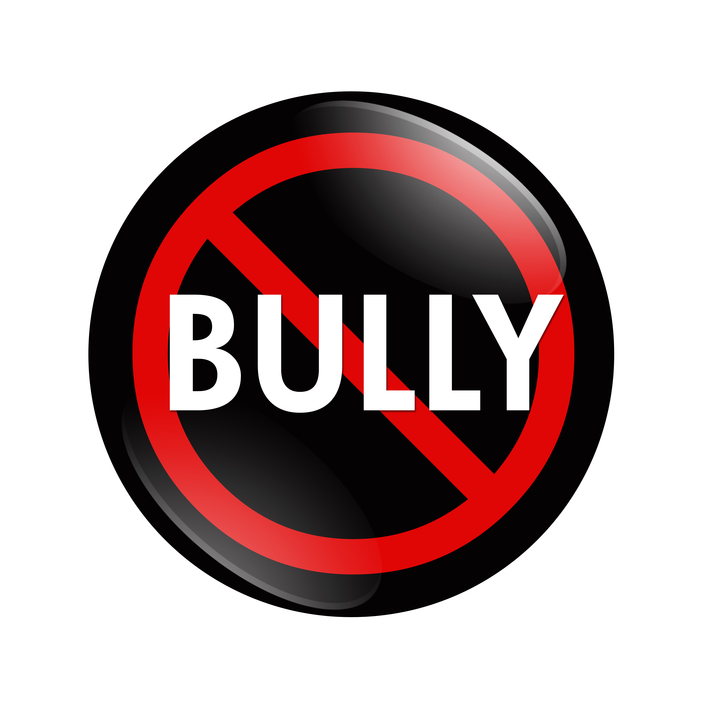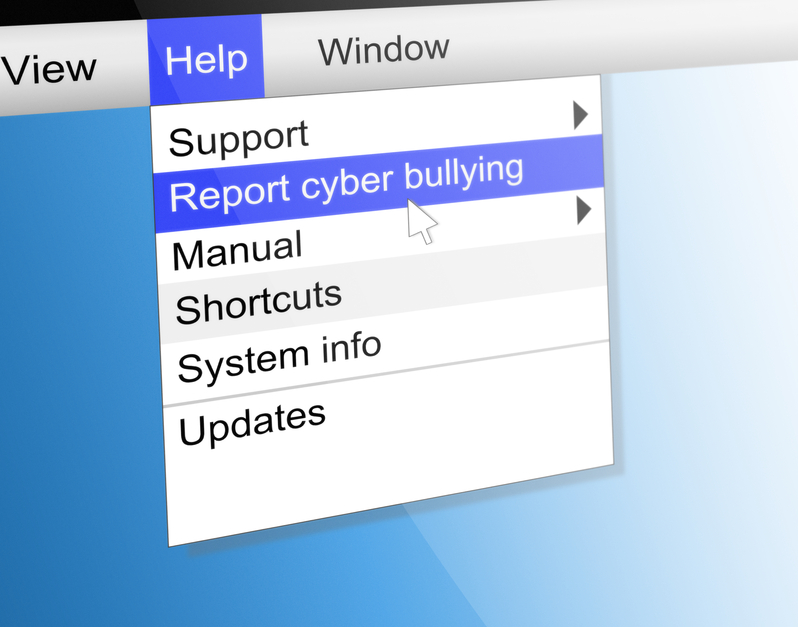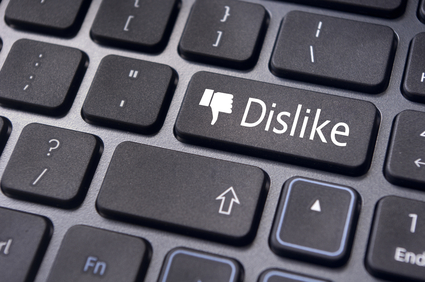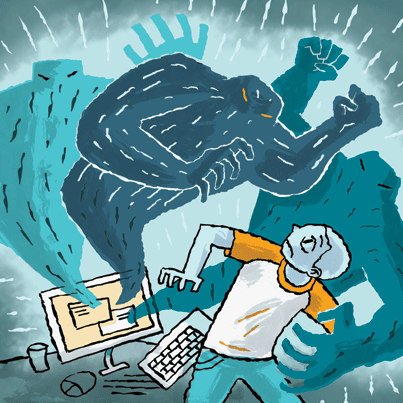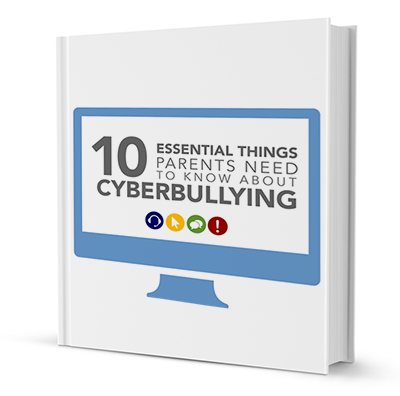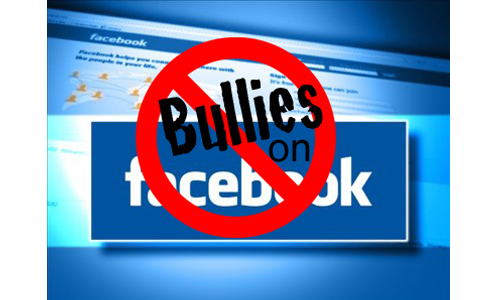Growing up is hard. Everyone acknowledges the difficulty we have as adolescents in social environments, especially school. The internet has opened the doors to a new level of pain for many individuals, known as bullying and cyberbullying.
Prior to the creation of the internet a bully was the kid that would pick fights and generally demean others. It was done to be hurtful, with no justification. The age of the internet and texting has given rise to a new type of bully, the process if known as cyberbullying and is just as harmful, if not more so, than those school yard bullies of old.
Cyberbullying is generally accepted to be the deliberate and repeated actions of an individual or group with the use of communication technology to hurt another person. This can be in the form of harassment, threats, malicious comments, and much more.
Cyberbullying Laws: Enforcement Difficulties in Schools
As more and more states enact tougher measures to prevent and punish cyberbullying -- like Delaware’s recent anti-cyberbullying law, many lessons can be learned from other states having difficulties with enforcing and reporting bullying occurrences.
For example, The Albany Times-Union uncovered several problems with the effectiveness of the New York school systems. Last year, New York’s “The Dignity for All Students Act” increased bullying penalties for incidents on school grounds. Its anti-cyberbullying provisions won’t take effect until July.
The troublesome enforcement aspects under its existing compliance system could magnify when the anti-cyberbullying legislation goes into effect. Here’s some of what the reporters discovered:
Cyberbullying, Harassment, Stalking and Addiction
The Internet is an amazing thing. It is a way to connect individuals from around the world, together without ever having to leave the comfort of home. It can be used to gather information that was never accessible so readily and provides for a way to discuss aspects of life with old and new friends. With this power and greatness, though, come many risks, especially when it comes to children. All individuals, including children and teenagers, are susceptible to cyber harassment, stalking, and potential addictions as the result of Internet usage. The following explains more.
Cyber Bullying Crime and Harassment
Top 25 Family Safety Articles of the Week
Here you go: Our weekly roundup of the top safety articles of the week courtesy of SafeSoundFamily. Tim is featured twice this week!
Top 25 Family Safety Articles of the Week
Tim was once again featured on SafeSoundFamily's "Top 25 Safety Articles of the Week." Check it out for some of the best articles that were published this week!
Home Safety
-
Mike, from the NFPA’s Safety Source, reminds us that we should have changed smoke detector batteries when we moved our clocks forward. He also links to a free resource (PDF) on smoke alarm safety at home.
-
Judi, also of Safety Source, has some sound advice on cooking safety: never leave your stovetop unattended. This is an all-too-common (but preventable) cause of house fires.
Family & Child Safety
-
We all know that it’s harder to be nasty to another person’s face, but Tim of uKnowKids puts this in context: cyberbullying is faceless, and is therefore easier and more prevalent than traditional schoolyard bullying.
The Bully Without a Face - Cyberbullying
Mobile devices and the Internet have become monumental tools that continue to revolutionize the way people communicate with each other. These instruments foster several purposes, such as recreation, marketing and educational functions. However, it's unfortunate that some individuals use them for negative reasons the same as they would for positive aims.
What is Cyberbullying?
Cyberbullying is a form of bullying, or hostile behavior, that's executed through various technologies, including the Internet, cell phones, and tablets. Offenders text, email, or type negative comments on social media sites in order to embarrass, threaten, abuse, demonize, and publicly mock their victims. Those who are caught or reported to authorities for cyberbullying can face disciplinary action at their school or workplace and even undergo legal charges.
Current Anti-Bullying and Cyberbullying Movements Around the Country
Bullying and cyberbullying are two of the most serious issues you will face in raising your children. These behaviors pose an immediate threat to your child's safety and if they are not handled swiftly they can cause long-term psychological damage that can affect everything from their personal relationships to their performance in school. Fortunately, parents, educators, and counselors across America are responding to these behaviors with some new and innovative approaches.
Leading the way, the federal government created Stopbullying.gov. Essentially, this is a one-stop shop of tools and resources where parents and educators can search for information that they can use at home, at school, and within their own communities. This fantastic resource provides information on how to recognize bullying, how to respond when it is discovered, and how to prevent it from reoccurring in the future.
While resources such as this have been extremely helpful in providing communities with support and information, some states have decided to take their anti-bullying and anti-cyberbullying efforts even further. This past year, the State of Delaware began considering legislation that would make it mandatory for schools in the state to report bullying and cyberbullying.
Is Your Child a Cyberbully Without Even Realizing It?
As technology changes the way we live, young people find new ways to pick on each other. With the rise of the Internet and social media comes a new challenge. In the old days it was easy to tell when a child was bullying others, but now the lines are blurred to the point where kids may not even realize that their actions are intimidating not funny. Even worse, often the victims of cyberbullying are guilty of it themselves. Understanding the difference between bullying and cyberbullying can help you teach your children what is appropriate behavior online.
The Line Between Being Funny and Being a Bully
What appear to be harmless pranks really are not when done online. Once something is posted online, it is impossible to take it back. Here are a few things that kids may find funny that in reality is considered cyberbullying.
-
Using someone else’s information to login to gain information on the person or to post information under their login information.
Top 25 Family Safety Articles of the Week
Another big thanks to the SafeSoundFamily team for pulling together the 25 best family safety articles this week from many great sources--online, TV and print! We highlighted them last week, and were so impressed with the articles that made the list this week, that we had to share them with our readers. SafeSoundFamily is free resource for home security information and alarm systems. Check them out!
Cyberbullying - What Can Teachers Do About It?
Cyberbullying has emerged as a new and pressing problem for schools and parents alike. The internet allows young people to participate in a world utterly removed from adult supervision: a world where bullying thrives and intimidation and harassment go unnoticed and unpunished by authority figures.
Cyberbullying can take many forms – all of which can be potentially devastating. Cybullies may use threats of physical violence to frighten a child but, more often, they will use intimidation to cow and torture a child. They may either threaten to or actually post derogatory information about a child on popular social networking sites, like Facebook or Twitter, and they may use mobile devices to keep in constant contact with their target.
Cyberbullying, regardless of the form it takes, can be exceptionally harmful. Children and young adults are very susceptible to the emotional damage bullying and cyberbullying can cause, and, as Sameer Hinduja, Ph.D. and Justin W. Patchin, Ph.D. argue in their paper “Cyberbullying and Suicide,” cyberbullying can make young adults significantly more likely to consider suicide. Hinduja and Patchin find that this particular kind of adolescent peer aggression makes its victims twice as likely to attempt suicide compared with those who have not experienced it.
Cyberbullying And The Laws That Govern It
Many people have been asking me if there are any laws or legislation in place to govern cyberbullying. I have pulled together a list of the states laws on bullying and what they mean in a short blog post below.
Top 25 Family Safety Articles of the Week: Feb 15, 2013
Spotlight: A special thanks to Erin Raub and the SafeSoundFamily team for pulling together a weeks worth of great articles! The Web publishing team at Safe Sound Family consists of highly-skilled writers and editors who are passionate about and experts on family safety issues. Their team is dedicated to providing great advice and useful tips and information on home security and overall family safety topics. This week they included two articles from our parenting blog and we're excited about the posibitily of working with them in the future! Enjoy!
Guest Post: Cyberbullies Online: Educate, Lead by Example
This guest post is from Tina Kehoe, a stay-at-home mom of three wonderful kids and a frequent writer on digital parenting topics.
A little girl named Marie, who happens to be in eighth grade, recently received an anonymous text that reads “we are going to have sex next Friday after the dance. Or else." The little girl trembles in shock and fear as she ponders whether she should go to an authority figure or just live in fearful suspense, wondering if the sender is telling the truth. Another sixth grader in New York is plagued by the school bully, so he retaliates via text that “You and your sisters and mom better watch your backs. My dad has a gun."
Even an NFL Cheerleader Can Be The Victim of Cyberbullying
We were shocked and horrified to see that beautiful Kaitlyn Collins, a former Green Bay Packers cheerleader, was the victim of cruel and malicious bullying on Facebook when a picture of her was posted to an opposing teams fan page. If this can happen to an NFL cheerleader, someone seemingly immune to this behavior, think of how many regular children and teens this is happening to day in and day out. Tim Woda has created some tips that every parent should follow that will help prevent cyberbullying from devastating a child in their family.
-
Understand the technology that your child is using. Be familiar with all the functions of the sites your child is using including social networks, gaming systems, mobile phones, chat sites, etc. Some of these could have messaging or photo-sharing options that you might not even be aware of.
5 Movies That Teach About Bullying
In today's day and age, bullying is not only done in person, but via the Internet as well. Physical altercations are just as harmful to a child as verbal ones, and a greater deal of harm can be done online, where there is a large network available for these bullying teens to put down their victims. They aren't just picking on them at school in front of a few others, but they are writing horrible things to them or about them on the Internet, spreading like wildfire, doing damage to the bullied child's reputation and psyche.
3 Ways Your Child Is Cyberbullying Others Without Knowing It
In a world that is now run almost exclusively by computers, cyberbullying has become a very real threat in the lives of our children and teenagers. In fact, statistics show that among a population of 13 to 17 year olds, more than 43% have experienced some form of cyberbullying within the last year alone. That statistic is staggering. Cyberbullying takes on many forms, and each one is harmful to a child, causing anxiety, depression and sometimes even suicide.
Gossip
Gossip takes on a new definition when it's done online. When we were kids, gossiping was mostly harmless. And even though it spread quickly when one of your friends had a juicy tale to tell you, it's nowhere near how quickly gossip spreads online. In just a few clicks of the mouse, information gets transferred from one person to another, causing an incredible amount of harm. Through the use of social networks, any information is easily announced to world via a Facebook wall post. Internet gossip can devastate a child.
The Importance of Parental Monitoring of Text Messages
What you need to know about text message monitoring and digital parenting this holiday season.
Parents often want two things: to be the "cool" parent, and to be the parent that can trust their children no matter what. Unfortunately, in the age of texting and social media, trust is usually a luxury parents cannot afford. In fact, for young children especially, it's a parent's responsibility to monitor their children's online habits to make sure they are using the power of modern day technology safely.
Parental Intelligence for Social Media
Parents are often ignorant about some of the dangers that stem from social media. Although many children and teenagers view social media as a fun place to connect with friends, it can be very dangerous depending on what they are doing online. Here are some Parental Intelligence issues that you should think about as your child uses social media websites.
- Think about the future
Social media accounts are not private, even if you select private settings for the accounts. Someone can also find a way to gain access to them. Although your children are still underage, a potential employer or even college may decide to view their social media account.
How To Deal With A Facebook Cyberbully
It is simply not acceptible to have to put up with a Facebook cyberbully. When someone is behaving in this manner they are causing problems that no one should have to deal with when they are just trying to enjoy their social media experience. As such, it is important to know the proper steps to take to deal with a bully should the need ever arise.
The first thing to do is to add all of the privacy settings that you can to try to prevent this kind of thing from happening again. It will also help to cease any harassment that you are currently experiencing. This wikihow article explains how to go about doing this:
With Cyberbullying and Bullying, What's a Parent To Do?
This article was originally posted on November 23, 2012 by Serena Gordon of HealthDay Reporter
When kids have academic problems, report cards make that clear to parents. And if a kid skins a knee or breaks a bone, parents know what to do.
But detecting that a child is being bullied, and then knowing how to react, may not be so clear-cut.
Kids often are reluctant to tell their parents they're being bullied or cyberbullied, making it difficult to know that they're having trouble with other kids at school or online.


